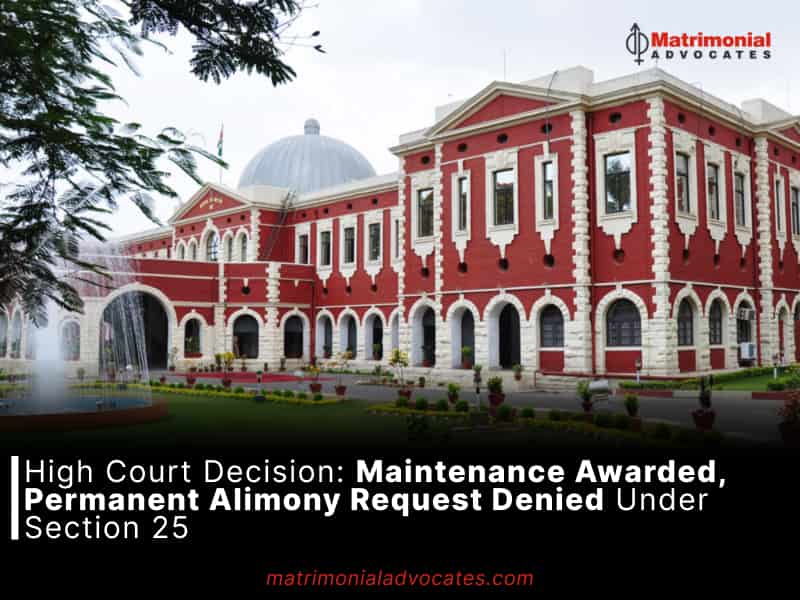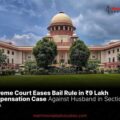
In a noteworthy legal development, the High Court of Jharkhand has overturned a prior ruling made by the family court in a case centered on the Hindu Marriage Act. The dispute revolved around the provisions of Section 25, specifically addressing matters of maintenance and permanent alimony.
Initially, the family court rejected the appellant’s plea for permanent alimony under Section 25. However, the High Court’s judgment marked a departure from this decision by granting maintenance to the appellant.
The appellant sought to challenge the family court’s ruling, which had approved their application under Sections 13(ia) and 13(ib) of the Hindu Marriage Act, 1955, while simultaneously denying their request for permanent alimony under Section 25.
The legal counsel representing the appellant argued that during the trial, they had submitted an application requesting Rs. 40,000 as permanent alimony, a request they believed had not received due consideration. The family court had primarily based its denial of the permanent alimony request on the grounds that the appellant was already receiving Rs. 10,000 per month as maintenance.
Conversely, the respondent’s legal counsel contended that the respondent was solely responsible for financially supporting both children and disclosed a monthly income of only Rs. 14,000. It was emphasized that the appellant was already in receipt of Rs. 10,000 per month in maintenance.
The High Court’s judgment included critical observations regarding the family court’s ruling, highlighting that it had not duly considered crucial factors specified in Section 25. These factors encompassed the social status of the parties involved, the testimonies presented by witnesses during the trial, the appellant’s financial capacity, and other pertinent elements.
The High Court underscored the complexity involved in determining permanent alimony and emphasized the need for a comprehensive assessment of various aspects. Furthermore, it stressed the importance of ensuring that the maintenance amount awarded to the wife enables her to maintain a reasonable standard of living commensurate with her social status and the lifestyle she was accustomed to when residing with her husband. Simultaneously, the awarded sum must not be unduly high to the detriment of the other party’s living conditions.
The High Court’s judgment reiterated that merely receiving Rs. 10,000 per month in maintenance should not serve as the sole justification for denying a claim for permanent alimony. In cases where the court decides that permanent alimony is not warranted, such a decision must be substantiated by comprehensive and well-reasoned justifications.
In light of these considerations, the High Court partially allowed the appeal and set aside the contested judgment, a decision that carries substantial implications for the interpretation and application of the provisions within the Hindu Marriage Act. This legal ruling underscores the intricate and multifaceted nature of judgments made under the Hindu Marriage Act, offering valuable insights for future cases within its jurisdiction.





